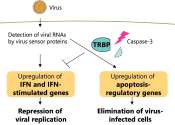Study shows how cells prevent harmful extra copies of DNA
A protein that prepares DNA for replication also prevents the replication process from running out of control, according to a new study by Weill Cornell Medicine researchers. The work, published Jan. 5 in Molecular Cell, ...







